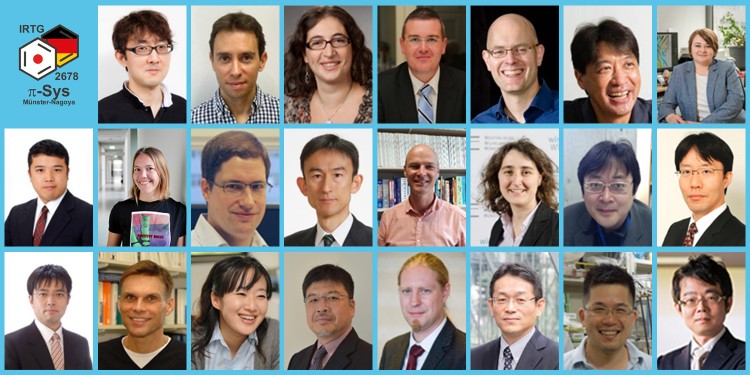
German Research Foundation approves new Research Training Group
The University of Münster is establishing a new Research Training Group funded by the German Research Foundation (DFG). An international team of 23 researchers from the universities of Münster and Nagoya in Japan is standing behind the doctoral program entitled "Functional pi-Systems: Activation, Interaction and Application". The experts will focus on the interface between materials research and organic synthesis as well as catalysis and biological applications. The Research Training Group will receive funding of around five million euros for an initial period of four and a half years. The spokespersons of the program are Prof. Armido Studer from the Organic Chemistry Institute of the WWU and Prof. Shigehiro Yamaguchi from Nagoya University.
Information on the Research Training Group
pi-Systems are ubiquitous - in our everyday life and in nature. They contain pi-bonds, which are characterized by the overlapping of so-called p- and d-orbitals. With the nucleobases of DNA, they form the cornerstone of our genetic material. pi-Systems are used in drugs, plastics, dyes and pesticides. pi-conjugated frameworks are biologically active, important in catalysis, essential in photonic and electronic applications, and essential for the design of supramolecular materials. Therefore, the synthesis of new pi-systems that possess extraordinary properties, leading to the development of next-generation materials and new applications, is highly topical. "To address these challenging areas, we have assembled an interdisciplinary research team of junior researchers and more experienced internationally renowned scientists with diverse research expertise," explains Armido Studer.
The central element of the Research Training Group is the qualification program for doctoral students. Within the funding period of four and a half years, 30 doctoral students on the German side will be given the opportunity to complete their doctoral theses. The key point of the program is the exchange, during which the doctoral students spend half a year doing research at the respective partner university and gain insights into German and Japanese scientific culture.
The Universities of Münster and Nagoya already look back on a Research Training Group in the field of chemistry, which was funded by the DFG from 2006 to 2014. Even at that time, many doctoral students benefited from a six-month research stay at the partner university. The research team at that time strengthened the bilateral partnership with a large number of publications. The links between the two universities remained strong and now provide the foundation to specifically investigate functional pi-systems - their activation, interactions and application.
Structured doctoral studies at Münster University
Research Training Groups are institutions of higher education for the promotion of young scientists. They are funded by the DFG for a maximum of nine years. The focus is on the qualification of doctoral students within the framework of a thematically focused research program and a structured qualification concept. There are currently six research training groups at the WWU. In addition, the University of Münster offers numerous other structured programs for the promotion of doctoral studies, which are financed by the university or third-party funding sources such as the DFG.
